Super-fast book scanner digitizes a book within minutes
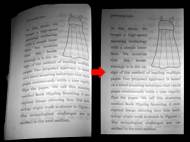 Scanning a book manually, page by page, is a slow, mind-numbing task. In order to solve this problem, Professor Masatoshi Ishikawa from the University of Tokyo (we also wrote about his baseball robot), and his lab members Takashi Nakashima and Yoshihiro Watanabe, created a super-fast book scanner. The system lets you scan a book by rapidly flipping its pages in front of a high-speed camera. They call this method book flipping scanning.
Scanning a book manually, page by page, is a slow, mind-numbing task. In order to solve this problem, Professor Masatoshi Ishikawa from the University of Tokyo (we also wrote about his baseball robot), and his lab members Takashi Nakashima and Yoshihiro Watanabe, created a super-fast book scanner. The system lets you scan a book by rapidly flipping its pages in front of a high-speed camera. They call this method book flipping scanning.
The camera operates at 500 frames per second, with a resolution of 1280 by 1024 pixels. For each frame, the system alternates between two capture modes. First it shines regular light on the page and captures text and images. Then a laser device projects lines on the page and the camera captures that as well. They claim their scanner can digitize a 200-page book in one minute, and hope to make that even faster.
The scanned pages are curved and distorted, but the researchers found a way to fix that. The laser pattern allows the system to obtain a page’s three-dimensional deformation using active stereo methods. So they wrote software that builds a 3-D model of the page and reconstructs it into a regular, flat shape.
The system is currently a prototype that occupies an entire lab bench. However, they hope to simplify and miniaturize it in the future in order to integrate the technology into portable devices like smartphones, enabling users to flip the pages of a book and get a digitized version within seconds.
The technology could also be proved worth in comics digitizing and backup. Watanabe said “Imagine if all of Japan’s vast manga archives, at libraries, homes, and elsewhere, could be rapidly scanned and shared among manga fans around the world. That’d be nice.”
Aside the technical problems related to optimization and miniaturization, there are still a lot of non-technical problems related to copyrights which need to be solved. When Watanabe approached a publisher in order to obtain a permission to use their books for testing the scanner, he was forbidden to use them, and had to create a mock book for testing. Once they perfect this scanning method, this technology will most certainly help in transition from traditional printed media to digital media.




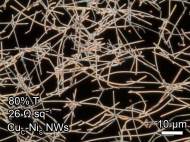
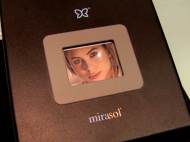

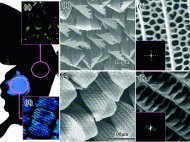
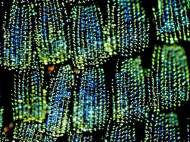
Scanning documents comes handy. Now scanning books quickly, with a camera which operates at 500 frames per second, with a resolution of 1280 by 1024 pixels opens up new chapter in Scanning.
Dr.A.Jagadeesh Nellore(AP),India
its fantastic.could u please give me a detail of image perspective normalization .thank you